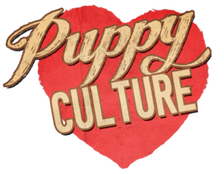
When I chose to mate Prue in January, a Global Viral Pandemic, that caused a variety of control measures to be put into place all over the world wasn't really in my plans! Being ordered to stay at home, and only travel for essential supplies has required me to think outside the box in terms of beginning these puppies socialisation. I do like a challenge....
So what's my plan?
I'm going to stick to following the Puppy Culture program as I had originally planned, with a few adaptions to the exercises to make them more relevant.
I believe the Puppy Culture exercises in the program to be second to none in terms of giving our pups the best start..
Through following exercises such as the Barrier Challenge, Clicker Training and the Box Game, Manding, the Scent Circle, Happy CER (Conditioned Emotional Response), Puppy Obstacle Courses, and Attention Exercises, Prue's puppies will be taught how to gain attention, how to problem solve, to be resilient, to be brave, and how to bounce back from being startled. All very important skills to have when the Social Distancing Measures are relaxed and we can start to take the puppies out and about in the world.
Many people think that Socialisation is 'just' letting their puppies meet and greet lots of different people and dogs - when in reality it is much more than that. It is about teaching our puppies how to be relaxed, how to cope with modern society and also how to behave appropriately when out and about.
It 'is' important that our puppies come into some form of contact with unfamiliar noises, people, animals, and other dogs, but..... there are two points to consider regarding our normal assumptions about socialisation of puppies:
1. In their seminal work on socialization, Scott and Fuller accidentally discovered that puppies just seeing a person standing passively from the shoulders up behind a fence did in fact become partially socialised to humans. So actual contact with unfamiliar humans and things may be optimal, but a lot of benefit can still be had from a puppy just observing stuff.
2. Dogs relate to their world much more through their sense of smell than any other sense. As primates, we are focused on touching, holding and caressing, particularly front to front contact. Dogs naturally prefer to pick up information via scent, and that sense of smell is astounding - being 10,000 to 100,000 more sensitive than our own noses.
These two points add up to meaning that our puppies can still get lots of beneficial socialisation by seeing things and smelling them whilst they maintain at a safe social distance. With that amazing sense of smell, we can stay quite far away from other people and the puppies can "see" them with their noses very clearly.
These are just some of the things I plan to do with Prue's puppies;
I plan to put the puppies in my car and drive (very short distances - 100 yards up the track or so) and allow the puppies to watch the outside world from within the car. Just to add context - we live in a very rural area - my nearest neighbours are both a few fields away..... I would not be putting anyone at risk.
I plan to work on recalls and creating good conditioned emotional responses (CERs) to barrier frustration, and moving objects on our own property. We have farmers on quad bikes passing our property several times a day. Other distractions could include; human household members walking on the other side of the fence, household dogs walking on the other side of the fence, motorised equipment and vehicles - we have cars and quad bikes of our own to set up exercises for the puppies. We also have very helpful neighbours...
I plan to work on generalising positive responses to "unfamiliar sounds" using the Dog's Trust's Sounds Sociable, and Sounds Scary sounds tracks which are freely available on their website. These clips include children playing, household noises, traffic, animals, fireworks and thunderstorms.
I plan to work on attention exercises at home using various distractions including; household members approaching, other dogs handled by household members approaching, household members touching,
sound distractions,sound socialisation recordings, active training and performing learned behaviors for reward with sound in the background.
I plan to offer interaction with novel surfaces and unstable surfaces - I have a huge collection of novel items to introduce to the puppies that I use in my own Puppy Training Classes at our purpose build training barn.
I plan to offer visual access to a range of animals, including our 5 cats, sheep and lambs in the fields next to our property, and the chicken's that we have at the bottom of our garden.
I plan to show the puppies that people can look different, by introducing different hats, wigs, different shoes, shawls, hi viz jackets etc - again things that we have at the Training Barn for our own Training Classes.
Bringing items home from the training barn, that have been used or played with, by unfamiliar dogs will also increase the experiences of Prue's puppies.
Prue's puppies will also enjoy playing with my other dogs and people in my own household.
I'm sure I will think of other novel experiences along the way - hopefully the Social Distancing measures will be relaxed at some point soon. I have no doubt that the incredibly little social beings that I am nurturing will relish the opportunity to get out into the big wide world and cope with it with ease when the time arises xx
So what's my plan?
I'm going to stick to following the Puppy Culture program as I had originally planned, with a few adaptions to the exercises to make them more relevant.
I believe the Puppy Culture exercises in the program to be second to none in terms of giving our pups the best start..
Through following exercises such as the Barrier Challenge, Clicker Training and the Box Game, Manding, the Scent Circle, Happy CER (Conditioned Emotional Response), Puppy Obstacle Courses, and Attention Exercises, Prue's puppies will be taught how to gain attention, how to problem solve, to be resilient, to be brave, and how to bounce back from being startled. All very important skills to have when the Social Distancing Measures are relaxed and we can start to take the puppies out and about in the world.
Many people think that Socialisation is 'just' letting their puppies meet and greet lots of different people and dogs - when in reality it is much more than that. It is about teaching our puppies how to be relaxed, how to cope with modern society and also how to behave appropriately when out and about.
It 'is' important that our puppies come into some form of contact with unfamiliar noises, people, animals, and other dogs, but..... there are two points to consider regarding our normal assumptions about socialisation of puppies:
1. In their seminal work on socialization, Scott and Fuller accidentally discovered that puppies just seeing a person standing passively from the shoulders up behind a fence did in fact become partially socialised to humans. So actual contact with unfamiliar humans and things may be optimal, but a lot of benefit can still be had from a puppy just observing stuff.
2. Dogs relate to their world much more through their sense of smell than any other sense. As primates, we are focused on touching, holding and caressing, particularly front to front contact. Dogs naturally prefer to pick up information via scent, and that sense of smell is astounding - being 10,000 to 100,000 more sensitive than our own noses.
These two points add up to meaning that our puppies can still get lots of beneficial socialisation by seeing things and smelling them whilst they maintain at a safe social distance. With that amazing sense of smell, we can stay quite far away from other people and the puppies can "see" them with their noses very clearly.
These are just some of the things I plan to do with Prue's puppies;
I plan to put the puppies in my car and drive (very short distances - 100 yards up the track or so) and allow the puppies to watch the outside world from within the car. Just to add context - we live in a very rural area - my nearest neighbours are both a few fields away..... I would not be putting anyone at risk.
I plan to work on recalls and creating good conditioned emotional responses (CERs) to barrier frustration, and moving objects on our own property. We have farmers on quad bikes passing our property several times a day. Other distractions could include; human household members walking on the other side of the fence, household dogs walking on the other side of the fence, motorised equipment and vehicles - we have cars and quad bikes of our own to set up exercises for the puppies. We also have very helpful neighbours...
I plan to work on generalising positive responses to "unfamiliar sounds" using the Dog's Trust's Sounds Sociable, and Sounds Scary sounds tracks which are freely available on their website. These clips include children playing, household noises, traffic, animals, fireworks and thunderstorms.
I plan to work on attention exercises at home using various distractions including; household members approaching, other dogs handled by household members approaching, household members touching,
sound distractions,sound socialisation recordings, active training and performing learned behaviors for reward with sound in the background.
I plan to offer interaction with novel surfaces and unstable surfaces - I have a huge collection of novel items to introduce to the puppies that I use in my own Puppy Training Classes at our purpose build training barn.
I plan to offer visual access to a range of animals, including our 5 cats, sheep and lambs in the fields next to our property, and the chicken's that we have at the bottom of our garden.
I plan to show the puppies that people can look different, by introducing different hats, wigs, different shoes, shawls, hi viz jackets etc - again things that we have at the Training Barn for our own Training Classes.
Bringing items home from the training barn, that have been used or played with, by unfamiliar dogs will also increase the experiences of Prue's puppies.
Prue's puppies will also enjoy playing with my other dogs and people in my own household.
I'm sure I will think of other novel experiences along the way - hopefully the Social Distancing measures will be relaxed at some point soon. I have no doubt that the incredibly little social beings that I am nurturing will relish the opportunity to get out into the big wide world and cope with it with ease when the time arises xx
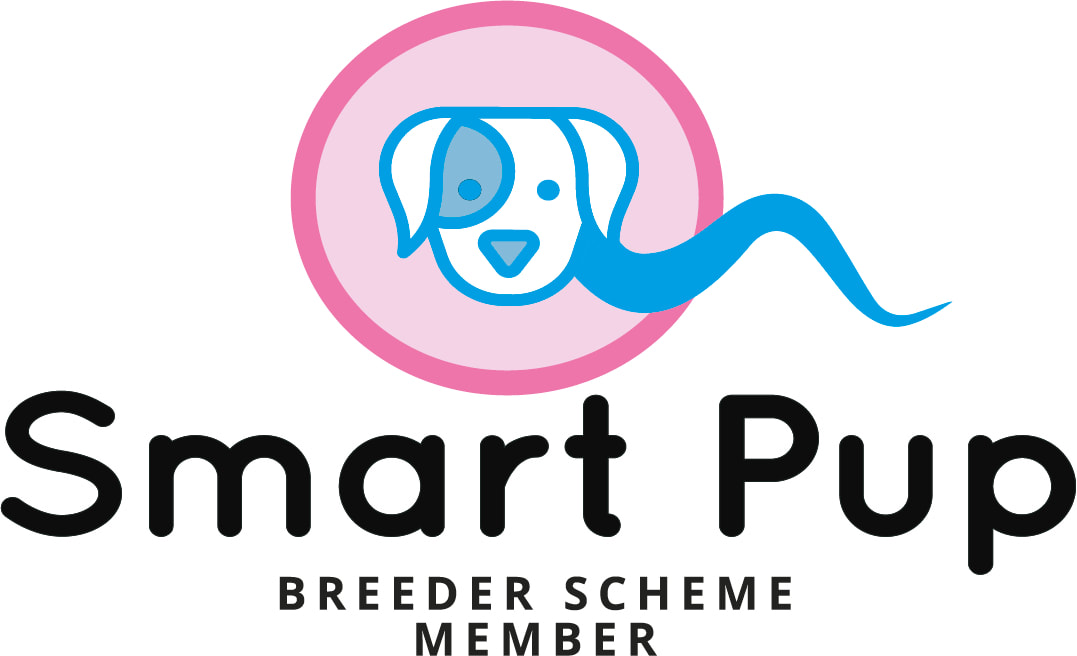
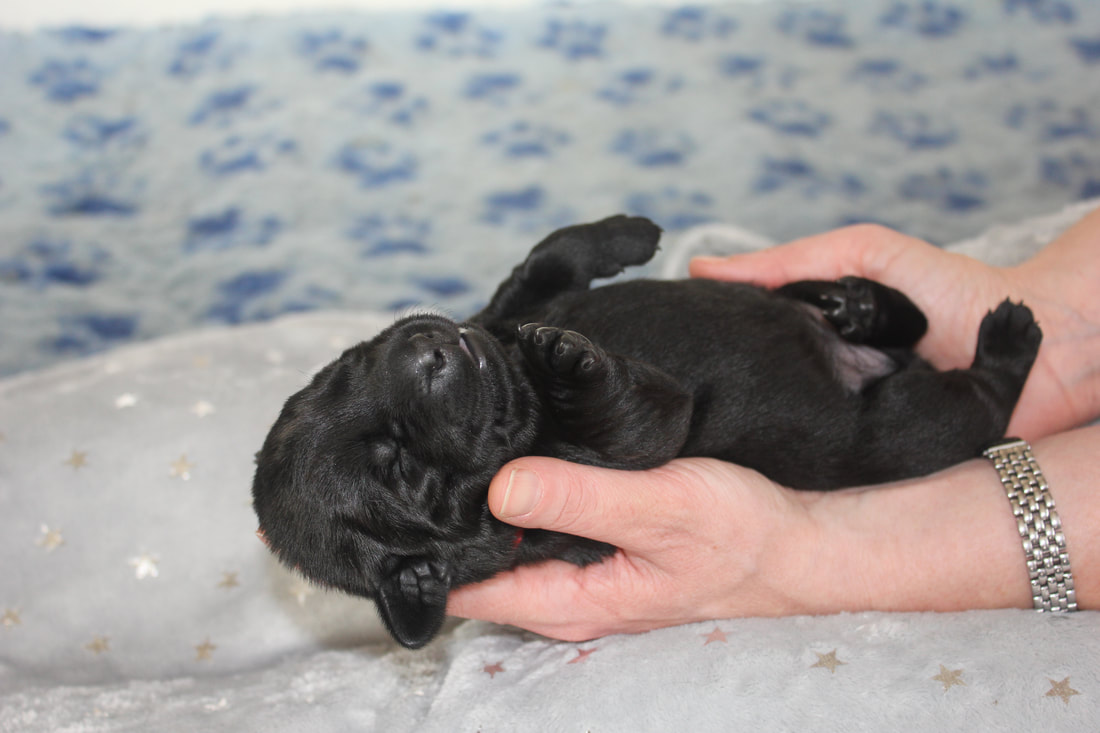
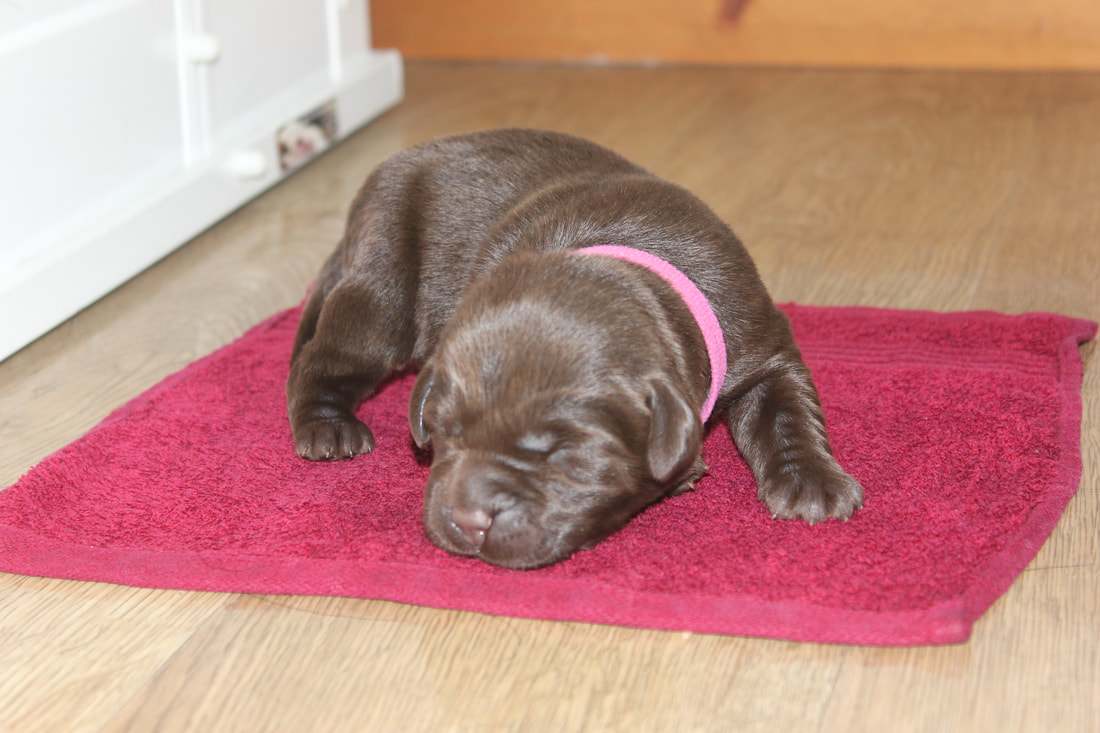
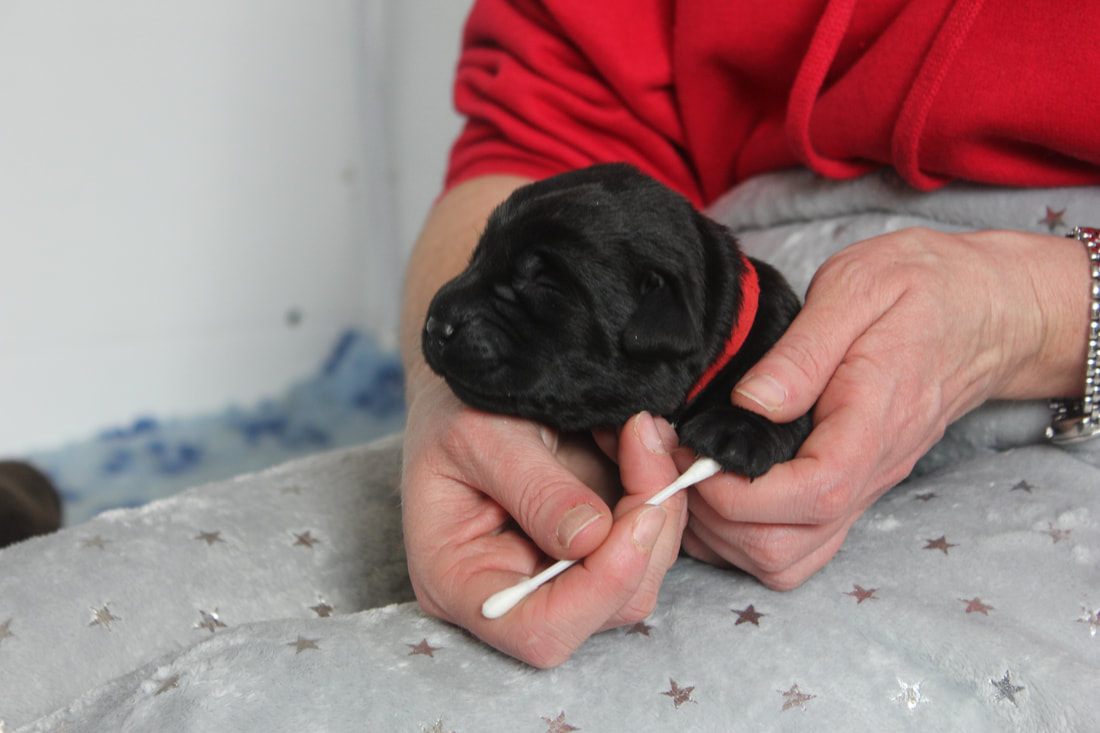

 RSS Feed
RSS Feed
